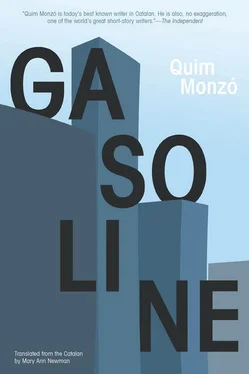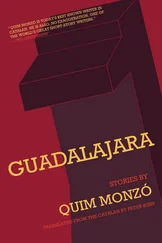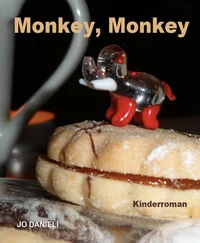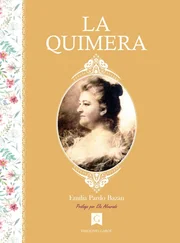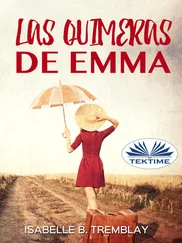Quim Monzó - Gasoline
Здесь есть возможность читать онлайн «Quim Monzó - Gasoline» весь текст электронной книги совершенно бесплатно (целиком полную версию без сокращений). В некоторых случаях можно слушать аудио, скачать через торрент в формате fb2 и присутствует краткое содержание. Год выпуска: 2010, Издательство: Open Letter, Жанр: Старинная литература, на английском языке. Описание произведения, (предисловие) а так же отзывы посетителей доступны на портале библиотеки ЛибКат.
- Название:Gasoline
- Автор:
- Издательство:Open Letter
- Жанр:
- Год:2010
- ISBN:нет данных
- Рейтинг книги:5 / 5. Голосов: 1
-
Избранное:Добавить в избранное
- Отзывы:
-
Ваша оценка:
- 100
- 1
- 2
- 3
- 4
- 5
Gasoline: краткое содержание, описание и аннотация
Предлагаем к чтению аннотацию, описание, краткое содержание или предисловие (зависит от того, что написал сам автор книги «Gasoline»). Если вы не нашли необходимую информацию о книге — напишите в комментариях, мы постараемся отыскать её.
Gasoline — читать онлайн бесплатно полную книгу (весь текст) целиком
Ниже представлен текст книги, разбитый по страницам. Система сохранения места последней прочитанной страницы, позволяет с удобством читать онлайн бесплатно книгу «Gasoline», без необходимости каждый раз заново искать на чём Вы остановились. Поставьте закладку, и сможете в любой момент перейти на страницу, на которой закончили чтение.
Интервал:
Закладка:
“Not drunk. You’re just crazy.”
They embrace again. Heribert puts his hand under her skirt, and when she protests, he stays still. But when she can no longer stifle her laughter, finally bursting out, Heribert tries to caress her pubis. The young woman finishes her coffee, they get up from the table, and begin to run after each other from room to room, going up and down the museum stairs and playing a combination of tag and hide-and-seek. At last, exhausted, they rest against Standing Woman by Gaston Lachaise. Little by little they slide down until they are sitting on the floor. They are caught in such a feverish embrace that when Heribert notices that the sculpture is moving he thinks for a moment that passion can make even the most immutable works kinetic. When he lifts his head, he barely has time to register that the guard’s gestures are not reprimands and the astonishment on the museum visitors’ faces is not censure, before, a tenth of a second later, he feels all the bronze of that larger-than-life and generously-proportioned woman crashing down on him and begins to understand what is really happening.
•
When he opens his eyes he doesn’t know what day it is, or what time, or how many days, hours, and minutes have gone by since the last time he opened his eyes, nor how many more will go by from the moment in which he closes them again.
•
Sunlight streams in through the window and lights up the wall at the foot of the bed. The first thing he sees is the flower arrangement. Then he looks down at his body, vaguely convinced it will be shorter than it was before. One of his legs, the right one, is in a cast. And one arm, also the right.
He feels comfortable in that bed. He turns his head. To one side there is a night table with water, bottles, and small objects whose functions are unknown to him. His whole body hurts. He looks up. He sees a small panel with buttons. One of them shows an outline of a light bulb with rays of light. The other shows a female silhouette with a skirt, a cap, and a line in her hand; it must represent a tray. He concludes that this is the button to call the nurse. He presses it. A half a minute later a young woman appears. “What if I can’t speak?” he thinks. Perhaps as a result of the accident he won’t be able to articulate a single sound. He’s afraid to put it to the test and discover it’s true. What if his tongue has been cut off? Or if he severed it himself, on impact? Impact. . He imagines his tongue on the ground, like a lizard’s tail. With a life of its own. And what about his face? Maybe his face is deformed. Maybe a terrifying scar has turned him into a monster. The nurse looks at him understandingly and tells him a slew of things. So he can hear, then; he’s pleased. He makes an effort to understand what the woman is saying. She is saying soothing things. She’s speaking to him as if he were retarded. Maybe the blow has turned him into an idiot. But an idiot wouldn’t think such a thing. Or would he? Maybe he has been an idiot all his life and the blow brought him to his senses. He opens his mouth and manages to utter one word, then two, then three: a whole sentence. He can talk, too. He closes first one eye, then the other. He has two, then. He asks for a mirror and details about his condition. The woman says he has broken an arm and a leg, and that the museum administration is astonished that such a thing could have happened. Technically it was quite impossible for the sculpture to fall. Heribert doesn’t find it so strange: everything is impossible until it happens, above all such bizarre events as this.
What if he can never paint again? Perhaps he is crippled, or will be an invalid for life. He requests a diagnosis. The nurse doesn’t know. He will have to ask the doctor. Maybe that’s what he needs, something to grab onto: the struggle to overcome an infirmity. He asks what day it is. Friday the 8th. He was admitted the day before. He’s only been there for one day? If she had said it was a month he would have believed it all the same. He can still decide, sick as he is, to make a heroic gesture and do the paintings for the exhibition: a feat worthy of a Greek demigod.
•
Helena arrives with a bouquet of flowers. Heribert recalls that just a short time before he had seen another bouquet of flowers. He looks around the room and quickly locates it, in a corner. Someone must have moved it. What a coincidence: two bouquets of flowers. Life is full of coincidences. One bouquet and another bouquet are a coincidence. He tries to find more. Helena has two feet, and so does he: voilà, another coincidence. He looks for more. A window with a blind and, next to it, another window with a blind: another coincidence. Looking for more is harder for him. He thinks that he has come up with quite enough for the first try: no need to overdo it.
“Who brought the other bouquet?”
“Humbert. You remember him, don’t you?”
•
The doctor seems like a good man. He jokes with him the whole time. He asks what the paintings he does from now on will be worth in the event they can’t save his leg and they have to amputate it, or if one arm ends up a bit shorter than the other? Will they be worth more or less than the ones he had done before? He also tells him not to mess with the nurses, and he smiles to show that it is only a joke. Heribert finds him charming and intelligent and makes a firm pledge to speak with him at length, some day.
•
There is a knock at the door. Heribert says to come in. Hug comes roaring into the room, telling him that Helena has decided to put on the exhibition any way she can, that they are all casting about for an idea that can save them. Heribert closes his eyes, hides his head under the pillow, and when Hug doesn’t leave, he calls for the nurse and asks her to escort him out.
•
The doctor’s comments lead him to think he has not devoted much attention to the nurses, which he proceeds to do from that moment on. The nurse on the night shift is more attractive than the one on the day shift. Maybe now that he’s all banged up he’ll start feeling passionate again. What’s more, nurses have always been a persistent part of popular erotic mythology, leading one to foresee miracles. At one point, when the night nurse is picking things up from the bedside table, Heribert lifts his hand to caress her thigh, but then lowers it. He concentrates on counting the tiles, the bars on the bed. . He could add them all together. . but what a bore! If here were in a ward, with a lot of other patients, he could watch them, make fun of them, listen to their conversations. He would have company. But no sooner does he have this thought than he realizes it would be horrible to have to put up with all that half-dead, skinny, pale, sick riffraff and their crying and moaning. Let them all die! He doesn’t want to see them! How glad he is to be in a room by himself!
•
He reads an article in the newspaper about the creative crises many painters, filmmakers, and musicians are going through nowadays. “Is there anything left to say?” the journalist asks. “Lately, the speed with which new fashions and cultural tastes succeed each other leads one. .” He drops the paper. He picks up a novel Hilari has lent him, in which there are no dead bodies. He used to think they were boring. Now he thinks the ones with dead bodies are phony.
•
The doctor comes in, with traces of blood on his gown and in need of a shave. There is a nurse with him. They are standing by the side of the bed, looking at him with a smile Heribert finds hard to categorize. The doctor announces that they will be releasing him that evening. He is much better. Soon, the doctor says, if he puts his mind to it he will be able to paint again. Heribert’s blood boils. What is this fool saying? How dare he insinuate something like that? What does he know about it? He had thought him to be an intelligent man, and now he comes out with this nonsense! He musters all the strength he has and spits at him. The arc of the sputum is weaker than he had intended, and it falls on the sheet on top of him. The expression on the doctor’s face changes and gets serious. The nurse wipes the spittle off with a Kleenex. There is a knock at the door. Helena comes in. She speaks with the doctor. Heribert studies the two of them, one right next to the other: Helena and the doctor, observing him. “Is she also getting it on with this quack?” Then the doctor and nurse leave the room. Helena has brought another bouquet of flowers. Why so many flowers? Heribert tries to think of some vulgar phrase that will annoy her, like: “Bring me a nice little eleven-year-old girl, and don’t bring me any more flowers,” but it seems like a cheap shot. For some time now (ever since the doctor and nurse had left), Helena has been telling him that the following day there will be a business lunch at their house, and that Hug will be there, along with other people who have money in the gallery, and Humbert. They have to fill the gap he has left them in, and they can’t do it just any old way. There were just a few days left, and they had to find an artist whose work was so good that this deplorable incident would not have lasting consequences for the gallery. They have to create a brilliant success, turn this error into a new leap forward, convert a debit into an asset. They have to use this opening to fly higher. This is why they can’t use a vaguely-familiar, second-rate artist — it would be like admitting defeat. There is only one possible move: they must introduce a complete unknown, someone whose body of work would amaze the critics, the public, and collectors alike. Humbert has the stuff. Tomorrow, all of them, together, will discuss what has to be done, and she’s telling him now so that he doesn’t think they’ve been plotting behind his back. But Heribert has been thinking the whole time about the “leap forward.” About how perfect metaphors, and strings of metaphors, were for whiling away the hours at play. Why can’t he just stay forevermore in that place, where, as if by a secret pact, everything is white and everyone is dressed in white, juggling similes and metaphors like a circus performer?
Читать дальшеИнтервал:
Закладка:
Похожие книги на «Gasoline»
Представляем Вашему вниманию похожие книги на «Gasoline» списком для выбора. Мы отобрали схожую по названию и смыслу литературу в надежде предоставить читателям больше вариантов отыскать новые, интересные, ещё непрочитанные произведения.
Обсуждение, отзывы о книге «Gasoline» и просто собственные мнения читателей. Оставьте ваши комментарии, напишите, что Вы думаете о произведении, его смысле или главных героях. Укажите что конкретно понравилось, а что нет, и почему Вы так считаете.
